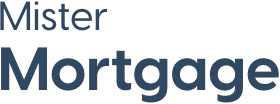
Are you a newcomer to the Netherlands? Do you want to purchase a home or a flat? If you are unfamiliar with the local market, the process of buying a home can feel like an impossible mission. Knowing the basic steps makes the process of becoming a homeowner in the Netherlands much more manageable.
Mortgage overview
Before you start looking for the right home, you need to know how much mortgage you can afford.
One of the most common mistakes made by first-time homebuyers is not understanding what they can afford.
Online mortgage calculators can give you an idea of what could be possible, but it can be very different from the reality of what you can afford. For this reason, we recommend contacting a mortgage advisor or a bank to receive a personalized calculation based on your current financial situation.
Find the right home
It’s time to start searching for your dream home now that you know how much you can borrow. Funda is the largest real estate website in the Netherlands if you are unfamiliar with it. You can create an account and download their app, so you can set up push notifications and use various filters such as price, place, and living area to find the best match.
Find a real estate agent (makelaar)
Arrange a viewing with a real estate agent as soon as you find a property. If you partner with a real estate agent, you have the right professional to assist you in assessing any technical or legal issues and get the right offer accepted.
Five reasons why you should work with a real estate agent:
-
Your agent has knowledge and experience of the Dutch real estate market.
-
A real estate agent represents you and works in your best interest.
-
A real estate agent knows the market and helps you place a bid on the property.
-
Your real estate agent helps you negotiate the value and navigates you through the paperwork.
-
Usually finds an appraiser to arrange the valuation report. The report highlights your property’s condition, the cadastral information, construction, and building layout.
-
Real estate agents charge around 1% of the purchase price or work with a fixed fee.
All potential buyers can place a bid on a property. After the deadline, the seller chooses a winner. When an offer on the house is accepted, you sign a purchase agreement with the seller.
Since you don’t buy a home every day, the buyer has a three-day cooling-off period to cancel the deal without reason.
Mortgage application
Now, it is time to arrange a mortgage. You usually have three to six weeks to arrange a mortgage. Mortgage brokers in the Netherlands typically work with more than 35+ mortgage lenders, while banks represent only themselves.
Valuation report (taxatierapport)
Before applying for a mortgage, you need to have an appraisal report. A property valuation report determines the value of your new home. If you want to get a loan, the bank needs to know how much a property is worth.
The bank uses the valuation report to ensure the property is worth enough money to cover the mortgage.
Bank guarantee or deposit
As a buyer, you can protect yourself by signing a purchase agreement with a financial clause. The financial clause protects a buyer if a mortgage lender decides to decline a mortgage application. In this case, a buyer has no consequences for cancelling the deal.
When the cooling-off period is over, the purchase agreement is binding to both parties. Typically, after arranging your mortgage, a deposit of 10% of the purchase price is required. The deposit would protect the seller if the buyer did not or cannot arrange a mortgage on time.
You have two options to pay a 10 % deposit:
1. Own savings
2. Bank guarantee.
Your mortgage broker arranges a bank guarantee if you do not have savings or don’t want to transfer your savings.
Technical building inspection (bouwkundige keuring)
A technical home inspection is highly recommended to avoid any high maintenance expenses in the future.The report shows the condition of the house in detail and any possible future repairs.
Visit the notary
When your mortgage is approved, the final step is to sign a mortgage deed at the notary. Before that, your notary sends you a statement with closing fees. Closing fees related to the mortgage are tax-deductible in the Netherlands. You can submit a tax return from the previous year in which the expenses are incurred.
Schedule a complimentary introductory call with our mortgage specialists. We specialize in mortgages for expats and are dedicated to navigating you through the home-buying process.
-
Access to a trusted network.
-
Highly competitive rates and flexible terms.
-
Guidance through the entire mortgage process.
-
English translations of bank documents are shared.

- 100% Independent Advice




